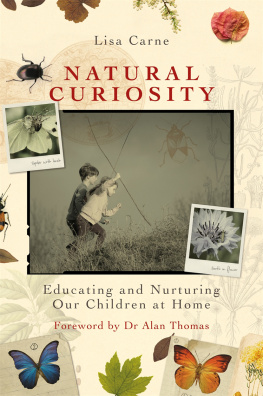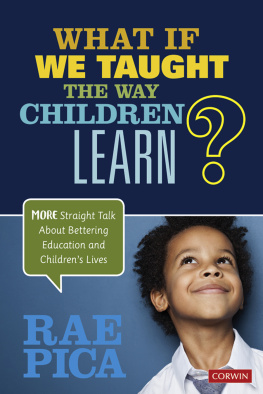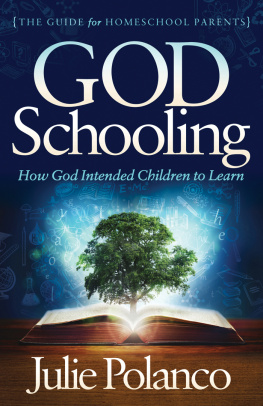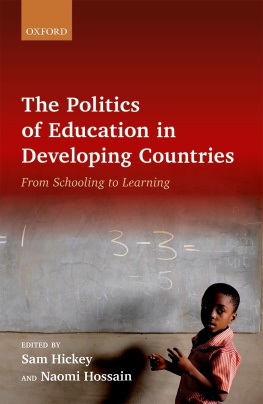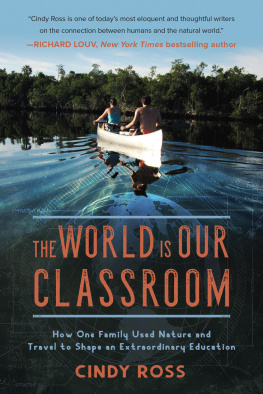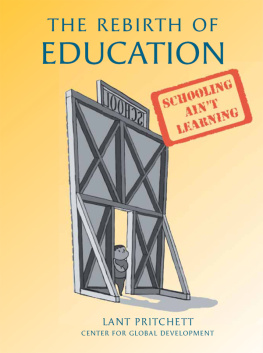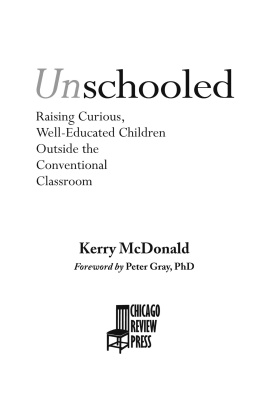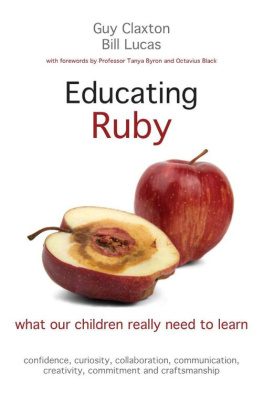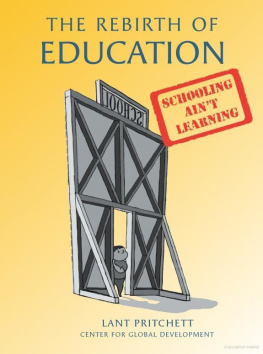
NATURAL
CURIOSITY
of related interest
Learning without School
Home Education
Ross Mountney
ISBN 978 1 84310 685 2
eISBN 978 1 84642 863 0
Choosing Home
Deciding to Homeschool with Aspergers Syndrome
Martha Kennedy Hartnett and Stephen M. Shore
ISBN 978 1 84310 763 7
eISBN 978 1 84642 171 6
Home Educating Our Autistic Spectrum Children
Paths are Made by Walking
Edited by Terri Dowty and Kitt Cowlishaw
ISBN 978 1 84310 037 9
eISBN 978 1 84642 190 7
NATURAL
CURIOSITY
Educating and Nurturing
Our Children at Home
Lisa Carne
Foreword by Dr Alan Thomas

Jessica Kingsley Publishers
London and Philadelphia
Quote on page 170 is reproduced from India of My Dreams (2008) with kind permission from Rajpal & Sons, Kashmere Gate, Delhi.
First published in 2016
by Jessica Kingsley Publishers
73 Collier Street
London N1 9BE, UK
and
400 Market Street, Suite 400
Philadelphia, PA 19106, USA
www.jkp.com
Copyright Lisa Carne 2016
Foreword copyright Dr Alan Thomas 2016
Front cover image montage: Ian Ross. The cover image is for illustrative purposes only, and any person featuring is a model. (Main cover photographs are by Ian Carne)
All rights reserved. No part of this publication may be reproduced in any material form (including photocopying, storing in any medium by electronic means or transmitting) without the written permission of the copyright owner except in accordance with the provisions of the law or under terms of a licence issued in the UK by the Copyright Licensing Agency Ltd. www.cla.co.uk or in overseas territories by the relevant reproduction rights organisation, for details see www.ifrro.org. Applications for the copyright owners written permission to reproduce any part of this publication should be addressed to the publisher.
Warning: The doing of an unauthorized act in relation to a copyright work may result in both a civil claim for damages and criminal prosecution.
Library of Congress Cataloging in Publication Data
Names: Carne, Lisa, 1969
Title: Natural curiosity : educating and nurturing our children at home /
Lisa Carne ; foreword by Dr. Alan Thomas.
Description: London : Jessica Kingsley Publishers, 2016.
Identifiers: LCCN 2015048794 | ISBN 9781785920332 (alkaline paper)
Subjects: LCSH: Carne, Lisa, 1969- | Carne, Lisa, 1969---Family. | Home
schooling--United States. | Home schooling--Philosophy. | Natural
history--Study and teachiing--United States. | Environmental
education--United States. | Education--Parent participation--United States.
Classification: LCC LC40 .C373 2016 | DDC 371.04/2--dc23 LC record available at http://lccn.loc.gov/2015048794
British Library Cataloguing in Publication Data
A CIP catalogue record for this book is available from the British Library
ISBN 978 1 78592 033 2
eISBN 978 1 78450 288 1
For the three wonders of my world
and Little Lord Douglas,
a loyal companion
Young naturalists are an endangered species, mainly due to habitat restriction, but they are not yet extinct There is a way to increase numbers and make a difference
CONTENTS
FOREWORD
Lisa Carnes starting point in this original and fascinating book is that today, more than ever, we need to be more aware of and knowledgeable about the natural world, and that we have to be part of it, not to dominate and exploit it. Perhaps the best resource we have, she argues, is children, who are naturally and often insatiably curious about the world around them, its flora and fauna.
During my research into home education I have often found myself going out for walks with families. I can recall many occasions when the children have been astounded by my lack of knowledge of the natural world. On a walk in the Norfolk Fens with one family, the eleven-year-old could hardly believe that I did not recognize a pheasant or that I had never heard of a great crested grebe, which he was excited to spot. Even my home-educated six-year-old grandson knows more about the natural world than I do, partly inspired by his parents interest.
We often hear about teachers who criticize the current situation in school, especially primary school, and being forced to follow an arid curriculum. Its not that different from my own primary education in the 1940s. One common complaint is that there is no time to foster a love of the natural world. Lisa Carne has not only introduced her two home-educated children to the natural world; she has gone much further and demonstrated how an enthusiasm for all things natural can encompass a full educational curriculum.
The common picture of the home educating family is that of parent and child sitting at the kitchen table and following a set curriculum, not unlike what would be experienced in school. While some parents might follow this route, certainly when they start out, they usually find that school methods do not really serve their children well and find themselves pioneering new educational approaches. In particular they are able to follow their childrens interests, simply acting as guide or mentor, certainly until the need for formal qualifications arises.
Home education has always been legal, though until relatively recently the practice was viewed askance by the authorities and anything that deviated from school methods would not have been tolerated. Over the last twenty years or so numbers have grown rapidly and there are now possibly 80,000 home-educated children in the UK. In consequence they have a voice to influence the authorities, and current government guidelines acknowledge that parents are free to follow their own philosophy. This allows them to adapt to their childrens interests and styles of learning. Lisa points out that her daughter is an avid writer, while her son is more hands on, and that she encourages both approaches.
Lisa demonstrates how her two children are being educated through their fascination with the world around them. As she says, all the basics are to be found in nature: science, literature, art, maths and literacy. One might add just about everything else worth knowing. There is always something to arouse and extend a childs interest. For example, when one of the children asked Why do we blink? they found that geckos have no eyelids so they lick their eyes to clean and moisten them.
Its not that Lisa pushes the natural world at her children she may have drawn their attention to it from the start but its just as likely to be the case that they take off in their own right. Its not narrow either; as she says, All that a child finds interesting should be seen as relevant to their learning.
The children constantly ask questions which not only increase their knowledge but also lead to acquiring research know-how. Interestingly, I recall talking to a girl who started school for the first time when she was eleven. She couldnt understand why the teacher was asking all the questions when it was the children who were doing all the learning! Here are just a few questions that Lisas children have raised: Can shadows be in colour? Is the moon moving? Whats a rip current? Why are people vegetarian? When is the next eclipse? Whats a ceasefire baby? What is magnetism?
Most of all, Lisas engaging book, full of observations and reflections, shows up the wonders of the natural world and is not just relevant to home educators but also to schools, especially in describing how we should all live in wonder at how the natural world has evolved and how we should look after it. In doing so she has not only written a fascinating and very readable account but also contributed a realistic and original alternative to mainstream education. As she points out, its message is not confined to home education; all parents can introduce a love of nature to their children and help ensure that future generations will take care of the planet.
Next page
